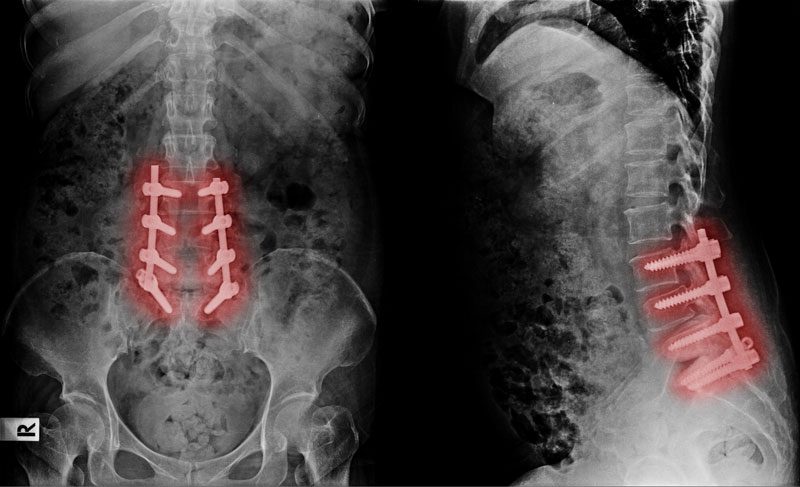Failed Back Surgery Syndrome
Residual Scarring, Inflammation, or Irritation after Open Back Surgery
Failed Back Surgery Syndrome is an umbrella term that covers a group of conditions that cause persistent back pain (with or without sciatica) following one or more spine surgeries. An estimated 30-40% of back surgery patients can suffer from this syndrome in the long term. Each successive surgery after the first increase this estimate, with up to 85% of patient reporting symptoms after four surgeries.
Symptoms are generally caused by residual scarring, inflammation, or anatomical abnormalities that alter the normal mechanics of the spine and create pressure on the nerves. Your doctor will use a combination of an exam, your medical history, and diagnostic imaging to confirm the diagnosis. A more comprehensive list of causes includes:
- Psychological and mood factors (depression, anxiety, or other mood disorders) and tobacco use may decrease response to surgical and non-surgical treatment
- Obesity increases risk of intraoperative and postoperative complications
- Scar tissue formation after back surgery
- Recurrent or persistent disc herniation
- Spinal stenosis
- Post operative infection
- Epidural post-operative fibrosis
SpineOne’s treatment regimen involves minimally-invasive alternatives to open back surgery, combined with physical therapy to promote ongoing spine health. Our treatments for Failed Back Surgery syndrome use these same disciplines to relieve scarring and inflammation around the surgical site and restore weakened supporting muscles to increase spine stability. Most of SpineOne’s patients undergoing this regimen to treat Failed Back Surgery Syndrome report decreased pain levels and improved quality of life.
